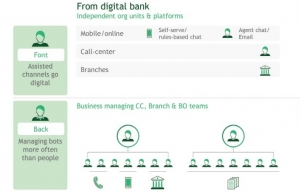Direct impact of exchange rates on business operations
How will the recent nearly 5 per cent exchange rate fluctuation impact import-export businesses?
 |
| Duong Bui, FX Trading Associate director for Markets & Securities Services at HSBC Vietnam |
For import businesses, an increase in exchange rates leads to higher costs for importing raw materials, machinery, and equipment, as well as exchange rate gains or losses from foreign currency payments or loans.
Due to competitive pressures, businesses cannot easily raise output prices to compensate for the increased costs.
For export businesses, an increase in exchange rates can benefit them by boosting VND revenue and profit, and potentially creating a competitive trade advantage.
However, Vietnamese exporters’ production activities also depend on importing raw materials from the global market, so an increased exchange rate also poses risks for them.
What strategies can businesses adopt to mitigate the risks posed by currency fluctuations?
Given the increasing volatility of exchange rates, both export and import businesses can develop appropriate scenarios based on their specific business characteristics. A clearly defined annual strategy will help mitigate the two-way exchange rate fluctuations, thereby minimising negative impacts on business operations.
To hedge against exchange rate risks for payments or debt repayments in foreign currency, businesses can utilise forward contracts or currency swaps to fix costs.
According to HSBC’s outlook, what is the projected trend of exchange rates from now until the end of the year?
HSBC forecasts that USD/VND will continue to face upward pressure in the short term due to the USD continuing to trade at high levels and strong dollar outflow pressure.
USD interest rates are currently higher than those of other major currencies. Additionally, the international market and the US Federal Reserve remain uncertain about the timing of reducing USD interest rates due to unmet expectations regarding economic data, the labour market, and inflation in the US.
Although the US economy shows signs of weakening, its growth rate is still higher than the previous average. The labour market has been stable in recent months, and inflation remains over 3 per cent, compared to the Fed’s target of 2 per cent. These factors will primarily support the strength of the USD.
Based on data from the General Statistics Office, dollar outflow pressure from import activities is rising, given increasing domestic manufacture and consumption thanks to the economic recovery. The demand for foreign currency from foreign investors follows net selling in the Vietnamese stock market.
Amidst the fluctuating forex market, the State Bank of Vietnam plays a regulatory role in maintaining stable foreign currency liquidity. Policies such as issuing treasury bills to increase VND interest rates, spot foreign exchange sale, and intervening in the gold market are being flexibly applied. These policies, along with fundamental factors such as trade surplus and positive foreign direct investment disbursement, will contribute to stabilising the exchange rate in the near future.
The exchange rate market may cool down towards the end of the year if the Fed potentially cuts interest rates later in September, according to HSBC’s Global Research division.
 | Exchange rate pressures could affect interest rates The VND/USD exchange rate has increased by 4.9 per cent since the beginning of the year, compared to an increase of 2.6 per cent for the whole of 2023. This exchange rate pressure is expected to lead to an increase in interest rates, according to the State Bank of Vietnam (SBV). |
 | GenAI’s impact on the financial sector Vietnam’s financial sector has shown remarkable growth, accompanied by a rising demand for digital services. Managing director and partner Il-Dong Kwon and project leader Luan Nguyen of Boston Consulting Group explain that a comprehensive strategy is imperative in order to bolster competitiveness. |
What the stars mean:
★ Poor ★ ★ Promising ★★★ Good ★★★★ Very good ★★★★★ Exceptional
Related Contents
Latest News
More News
- 0.1 per cent tax proposed on each transfer of digital assets (February 05, 2026 | 17:27)
- Ministry of Finance tightens policy delivery at start of year (February 05, 2026 | 17:26)
- Vietnam steps up market reforms as FTSE Russell reviews upgrade progress (February 05, 2026 | 17:20)
- 2025 profits mixed amid strong energy and farming results (February 05, 2026 | 17:18)
- Cashless payments hit 28 times GDP in 2025 (February 04, 2026 | 18:09)
- SSIAM and DBJ launch Japan Vietnam Capital Fund (February 04, 2026 | 15:57)
- Banks target stronger profits, credit growth in 2026 (February 04, 2026 | 15:43)
- Vietnam on path to investment-grade rating (February 03, 2026 | 13:07)
- Consumer finance sector posts sharp profit growth (February 03, 2026 | 13:05)
- Insurance market building the next chapter of protection (February 02, 2026 | 11:16)

 Tag:
Tag:




















 Mobile Version
Mobile Version